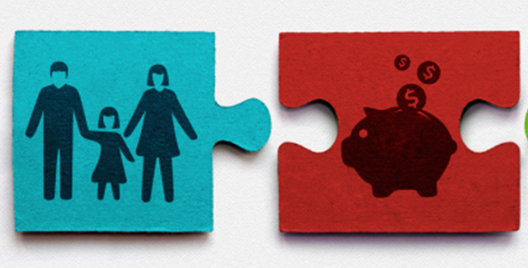
15 Ways To Save You A Heap Of Cash Every Month.
15 Ways To Save You A Heap of Cash Every Month.
This post might cost you a few minutes to read, but it could save you a lot of money.
In my previous post, I emphasized why we should spend less than we earn. The more money we don’t spend, the less stress we will have, and the more we can be generous to others and invest in our future. That’s my definition of financial sanity right there.
But how exactly does one spend less?
In this and the next 2 posts I’d like to get really practical. The series looks like this…
- Previous post: Why spend less.
- This post: How to save on everything (except your groceries and food).
- Post 3: How to save on your groceries while still eating healthily.
- Post 4: How to pull out the root of overspending – discontentment.
Nope, I am not bequeathing you with my financial greatness – Julie and I are just as in need of this series and sanity as you are. We’re the first readers of this blog series, trying to apply it as we go. I’ve gathered wisdom from hundreds of people and places and pages and tried to extract the best practices from it all.
The result? 15 applicable ideas geared at helping us to spend less than we earn. Here goes!
1. Budget: take control of your money with a plan.
This point involves three components…
1) Be clear about your present costs. Do you know exactly how much you currently tend to spend and on what? This knowledge is the starting point.
2) Now plan an ideal month of expenditure, using a budget. When you budget, you’re spending in theory, on purpose, every cent you get before the month begins. Many people view a budget as a straight jacket, but when you see that a budget is just spending your money with intention, you’ll actually experience more freedom than before. Give it three to four months to start working. It won’t be perfect the first time you do it. By the way, over-fund your food and groceries category – most people naively under-fund here.
3) Oversee your budget with the help of an app. There are some amazing apps that can help you as you navigate the rocky road of learning how to stay in control of you money. There’s the YNAB and the GoodBudget apps. But because local is lekker, and in this case, actually best, I recommend Old Mutual’s 22seven app. Listen to what my friend Tessa says about it…
“It tracks my finances and categorizes them based on where I swipe. It’s an amazing and effortless way of creating an expenditure report without having to input much data myself. I can now work with the monthly averages on each category, such as eating out etc, and am able to adjust my budget accordingly. Such a useful tool. I was always too overwhelmed at the mammoth task of budgeting, but this app really made it easy.” It also tracks your R/A, investments, PnP and Clicks points, and Discovery rewards.
2. Debt: avoid it and pay it off diligently.
There is such a thing as good debt, such as purchasing a rental property where the rental starts covering the repayment soon enough. But most of us live in bad debt.
Einstein said that the way to wealth is to get compound interest working for you. The way to poverty is to get it working against you. That’s what makes debt so despicable.
Much better to save up for things you want. Clothing accounts are a definite problem. Buy clothing cash. And be weary of paying via debit orders – do the maths, you will end up paying a lot more.
Don’t use a credit card unless you have the discipline to settle the full balance every month. Credit card interest is extremely expensive. Cut them up if you can. If you do choose to keep one, set a low limit on the amount you can borrow from the creditor – and tell them not to increase that amount without your permission.
Slam the phone down on the sweet salesperson who kindly offers you more credit. No, they are not the answer to your prayers. Treat credit offers like a honey comb surrounded my bees. Enticing, but if you touch it you’re going to get stung!
If you do have debt (loans, store cards, store credit facilities) try and consolidate the debt. This may reduce the total installment. Use any money saved to further pay off the debt.
If you don’t consolidate the debts, list them and conquer them one at a time. Pay minimum amounts on all, but pay all the excess money you have into the smaller ones until they are wiped out. That feeling of crossing it from the list will give you the boost to wipe out yet another debt. Another angle is to tackle the debts with the highest rates first.
If you’re in heavy debt, now that the NCA protects you from being over- or surprise-charged, debt counsellors are well worth considering.
3. Transport: pay less for getting around, cars and fuel.
Try to live near your work. You’ll save time then too.
If possible cycle or walk. There’s a reason that Manhattan has some of the lowest adult obesity rates in the States – they’re always on their feet.
Use public transport. This will grow your sense of community in the city, and finally, you’ll have time to read. You could also Uber to work – a friend says that in his case, it works out cheaper than the monthly costs of a vehicle – loan repayments, fuel, maintenance etc. But the real reward is the extra hour he has every day to work on his laptop in solitude.
Buying a car? Must you really buy new? It will depreciate 10% as it’s driven from the showroom. Hasn’t your previous car still got some more mileage? A car is a depreciating item, not an asset. The more expensive the car, the higher the maintenance and insurance costs.
When buying, be sure to investigate fuel efficiency and maintenance costs too.
Want to save fuel? Avoid peak traffic – stop-start driving costs a lot. Accelerate slower and glide toward a red light while in gear. Stay beneath 100kph. (Generally every 10kph faster than 97kph adds 7-10% to the cost, as well as increasing the risk of an accident.)
4. Clothing: wear what you can afford.
Expensive clothes don’t seem to last much longer anyway. And besides (my wife tells me) if you hang out with snooty friends, none of them will have your boots from Pep 😉
5. Communication: save on your phone.
No need to chew up all your money as you chew off your friend’s ear.
Don’t upgrade your phone so often. My friend used the same iPhone for 5 years before upgrading, saving 15k over the 3 years she had a phone-free contract. Another friend did the same thing with a pay-as-you-go option.
Have you heard of Telkom’s latest cell phone contracts? For example, R600/month gets you 20 gigabytes of mobile 4G/LTE data, free on-network calls, 1 500 minutes of free calls to other networks, zero-rated WhatsApp, free SMSes, and free and unlimited Wifi access at 6 000 hotspots. (Nope I haven’t monetised this blog, but I am impressed!)
Lose your landline.
6. Mortgage: reduce your monthly costs.
Home repayments. The most substantial debt people face is their home loans. When purchasing a house, fight for lower rates – get at least two bond originator agencies competing for your business. Pay more than the minimum amount – if you can’t do this straight away, then whenever you get a salary increase, be sure to increase your monthly repayments by a similar percentage. (If you get a pay rise of 10% per year, and follow this plan, then you will save yourself 9 years of repayments!)
7. Home: reduce water and electricity costs.
Water costs. Let your gardens and pools thirst. Select plants that need less water, such as proteas, aloes and succulents. Have a water tank outside the house that collects the water from your clean gutters. Research a borehole option too. Use it to wash cars, water the garden and refill the pool. Dishwashers use less water than washing basins (thank you Lord).
Electricity costs. Get a geyser timer, and reduce the specified heat on your geyser to just hot enough. Go solar – I have a friend whose solar-powered geyser cut his bill by 40%. Cook on a gas stove. Boil a full kettle and keep hot water in a thermos flask for hot water through the day. Otherwise boil only as much water as you need. LED strip lights use next to no electricity.
8. Health: invest in it affordably.
My next post is about how to cut down the cost of food, without compromising on healthiness, so I won’t touch on food.
If your family is reasonably healthy ditch the comprehensive medical aid and just go with a hospital plan. (There is a reason why medical aids make billions in net profit each year – we are idiots.) Get gap cover – in our case it has paid out almost as much as our hospital plan, and yet it costs a twentieth of the price.
My aunt decided to buy an apartment instead of medical aid. The assumption is that we take medical aid because of the titantic costs. When her husband got cancer, they sold the flat and used only a fraction of it.
Look after your teeth, and your kid’s teeth. This simple habit will save you so much in dentist bills. If only I had a chance to look after my younger teeth better! Well I don’t, but I can look after my kids’ teeth.
9. Insurance: reduce your premiums.
Insurance companies are notorious for increasing your premiums every year. My highest earning hour every year is when I sit down to phone my insurance providers for car, house and possessions. I update my portfolio. But more importantly, I politely express my non-loyalty. I say, ‘I am not totally happy with my premiums and am considering exploring your competition’s offers. Is there anything you can do to reduce them?’ They always do.
By the way, take your Homeowners Insurance off your bond. Rather add it to your Householders Insurance – you could save up to 50%.
Only insure what you can’t afford to replace. Use savings not insurance for low cost risk.
Got an attractive spouse? You will like my friend’s advice: ‘If you are young and married to an educated and attractive person, reduce your life insurance. Don’t believe those salesmen with their doom stories. If you die, your spouse will get a job and remarry, and probably end up better off. If your spouse is not marketable – maybe keep the high life insurance.’
10. Kids: spend less, play more.
Nappies. Takealot are usually the cheapest and they deliver for free so it saves on driving to shops. One of my friends is saving the planet (and a lot of money) by using cloth nappies, which amounts to 2 extra loads a week.
Outings. Make a list of memorable things to do that cost little or nothing. For example, Julie and I take our kids a few times a week to a nearby farm’s dam where we throw stones into the water. I take my 3-year-old Ivy babychino-hunting on daddy dates. We go to a different coffee shop each time. She loves it.
Toys. Toy swaps rock. Watch kids and notice that a first time encounter with a good old toy is just as novel as one with a new toy. For kids under 6, pay a small monthly fee to be part of a toy rental club, where you get a new (but used) set of toys every month. Also don’t spoil kids at Christmas time. The more toys you buy them, the more valueless each toy becomes. My wife’s advice is to buy them something to wear, something to read, something they need, and something to play with. That’s one toy to four gifts.
Extra-murals. Consider cutting a few. They will not make your child a genius and there are plenty of free activities offered through the schooling system.
Holidays. Do like many of my friends do by paying for your holiday by hiring out your home on airbnb. Can’t afford accom for your family where you want to go? Since staying with locals is best, find out on couchsurfing which locals are just itching to host you and your family for free. By the way, apparently camping is more memorable than staying in brick-and-mortar comfort, especially for little kids. Also, look up the word staycation.
11. Deals: keep your antennae out there for good prices on things you need.
I was chatting to this guy the other day who bought amazing roof racks that he didn’t need because they were such a good price. That’s not saving. That’s dumb spending.
You’re a sucker not a saver when you buy something you don’t really need, no matter how cheap it is.
When it comes to the things you really need though?
For more expensive items, get three quotes first. Teach your kids to do the same.
Ask for discounts on expensive items. My buddy says he hardly ever buys something for over R1000 where he doesn’t politely but self-assuredly ask for a discount. He owns a shop that sells kitchen appliances. He says that he almost always gives discounts to the person who asks confidently, in fact he respects them for asking.
Start a Whatsapp group with your friends, where you share any news about useful specials. For starters, Takealot has loads of specials – and delivers for free.
Buy secondhand. Not everything you buy has to be new. Buy some furniture, toys and sports equipment second-hand on Gumtree or on a secondhand Facebook group. Don’t be afraid to negotiate here too.
12. Collaboration: team up with others.
Consider trading skills. Someone I know does her hairdresser’s Facebook page on the side, who in turn cuts the whole family’s hair. Another does part-time admin for a company who cooks and delivers meals, in exchange for food delivered every night.
I have friends who live near each other and share appliances such as lawn mowers, printers and washing machines. Not only do they save money, but it heightens their sense of community. On a much bigger scale, you could do the same with purchasing a boat or a holiday home.
Lift clubs (for you or your kids) save time and money, and reduce carbon emissions.
Also, feel free to tell your friends what you want for your birthday. My friends’ and family’s combined generosities bought me a wetsuit and surfboard for a milestone birthday – much better than a panoply of odds and ends I did not need.
13. Stuff: look after it, and think functional economics.
Purchasing something like a surfboard or clothing or car or smartphone is the start of the relationship, the hard work has only just begun. If you put in the minimal effort of looking after it (keeping a surfboard in a board bag, or not washing your clothes after every use unless obviously dirty, or servicing your vehicle regularly) it will last longer and save you money in the long run.
Let me explain what I mean by ‘functional economics’. Weigh up what the item will be used for (how important is it?) over the cost of the item. For example, should you use that extra money on new tennis shoes and racket (if you play twice a month) or on a bigger dining table (which your family will use twice a day)? Go for bang for your bucks.
14. Payback: take advantage of money-back schemes.
Using their Discovery and Vitality membership, two families I know boast of the monthly 1k kickback they get for the healthy foods they buy at Woolies and Pick n Pay. Both admit it requires some effort, but the positives warrant it – cheaper movies and flights, and healthy eating and health check ups are encouraged.
There’s also FNB ebucks, and Clicks Club and PNP Smartshopper cards.
15. Self-awareness: tell the difference between necessities and luxuries.
The first sign of greed is that you can’t tell the difference between necessities and luxuries. So name the luxuries that you have come to assume are your birthright. Contemplate that millions of people live happily without them.
Let’s think of simpler examples …
Like fast food – a luxury not a necessity.
So is DSTV.
So is having a green lawn. Stop spending so much on your lawn, and rather spend on a vegetable garden.
If you eat out less you might enjoy it more. Some people cut restaurants out totally, while others set a budget for a month, and then stick to that.
Think how much money you could save every month if you took lunch to work or cut out that daily flat white.
Date nights are so important. But picnic, coffee or dessert dates can be just as special.
This principle plays out in bigger expenses too …
Purchasing a reliable car for transport may be a necessity, but getting a new one or a very fancy one is a luxury.
Getting your kid into a good school is a necessity. An elite school would be a luxury.
Let your mind go on this. List all the things and experiences that you expect to be yours. Now, for each one, ask yourself whether it is a luxury. Or a necessity.
That’s all I got for now. But enough advice here to save you 1000s!
Any other money-saving insights and opportunities you’d care to share with us?
PS. Don’t miss the next post on how to save in groceries, without compromising on healthiness. If you haven’t done so already, liking my Facebook page will guarantee it will come into your feed.
Comments
Also published on Medium.




